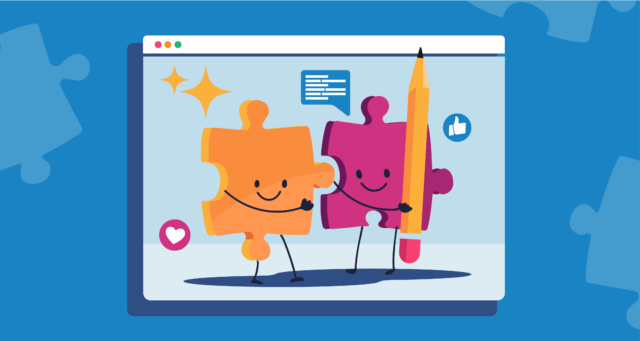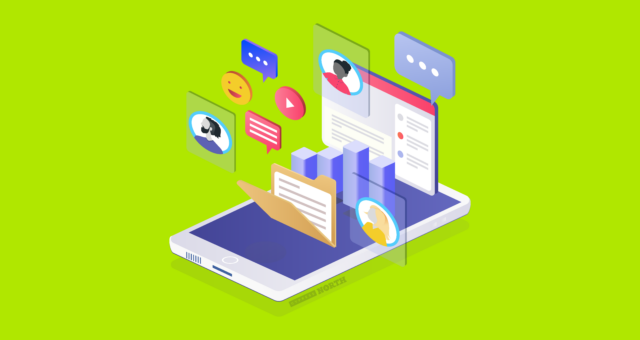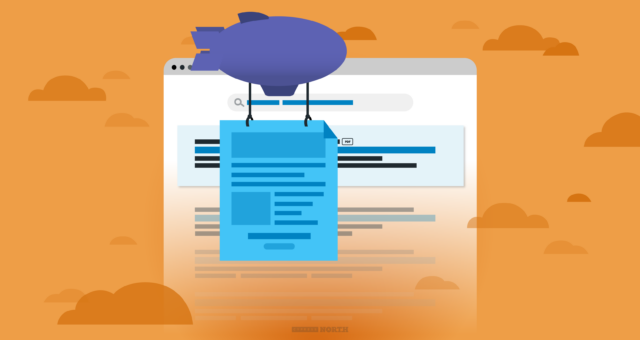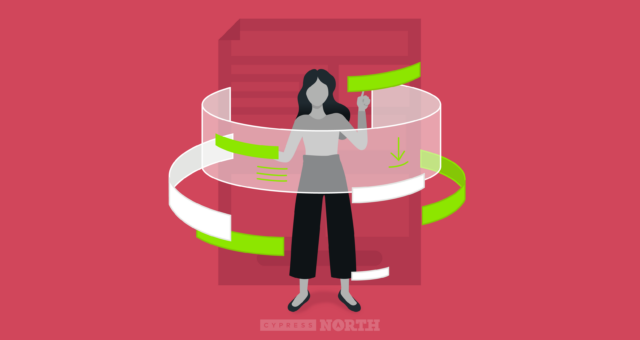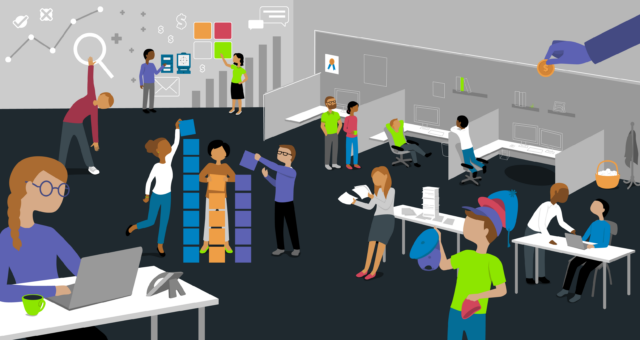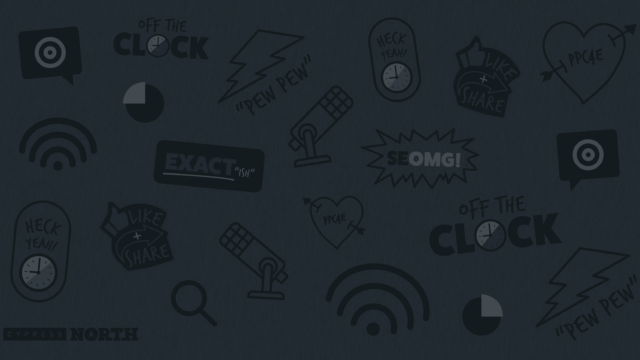What Do ChatGPT & Other AI Mean for Content Writers?
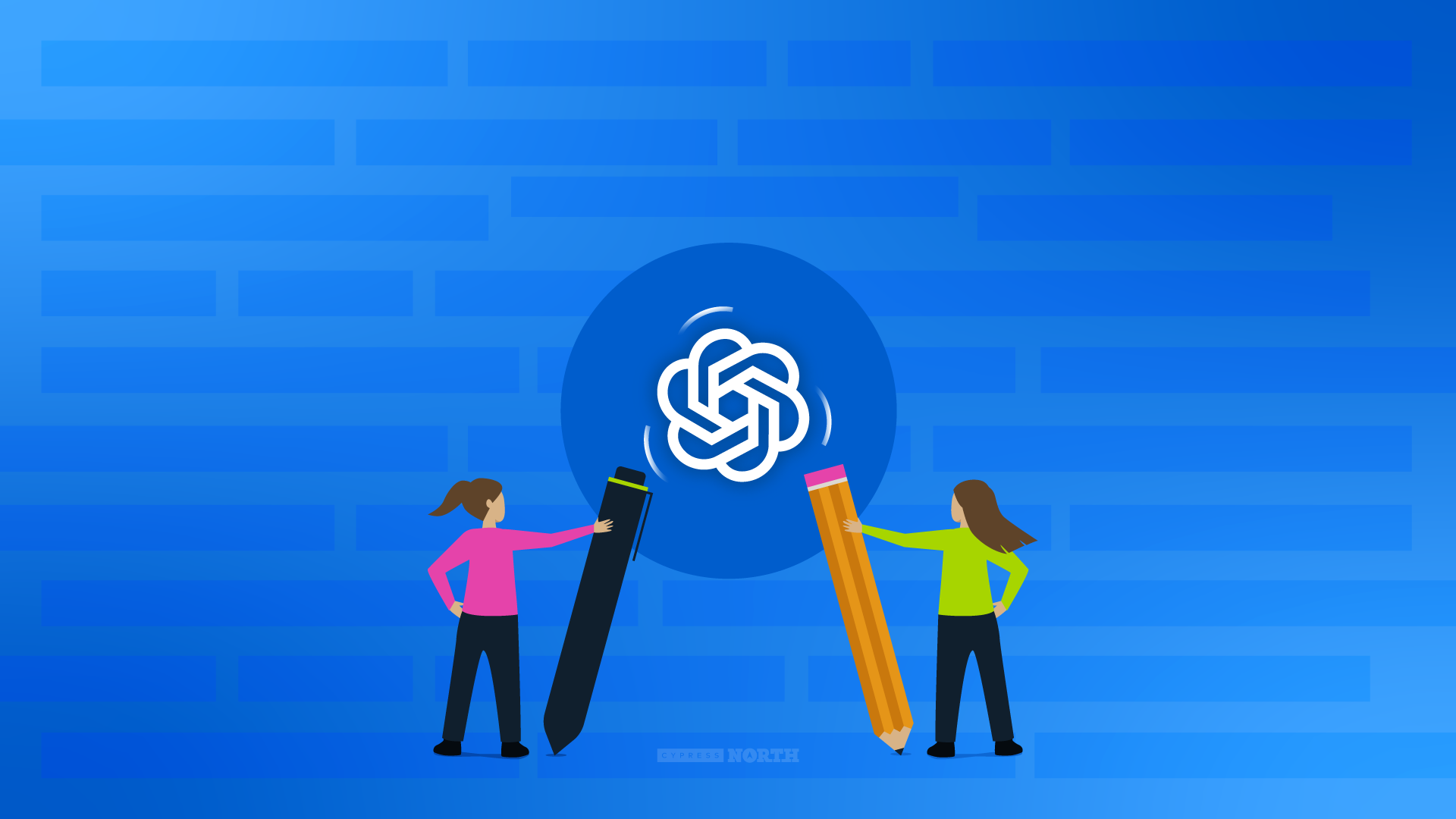
Can AI replace content writers? Here's what marketers need to know about new content generators
ChatGPT, Google Bard, and Bing chatbot have been everywhere lately. You’ve seen the social media discussions and the national news articles. They’ve been talked about on late-night TV. These artificial intelligence (AI) models have taken the world by storm and, naturally, have prompted some questions about what they are, what they can do, and what their existence may mean for us moving forward.
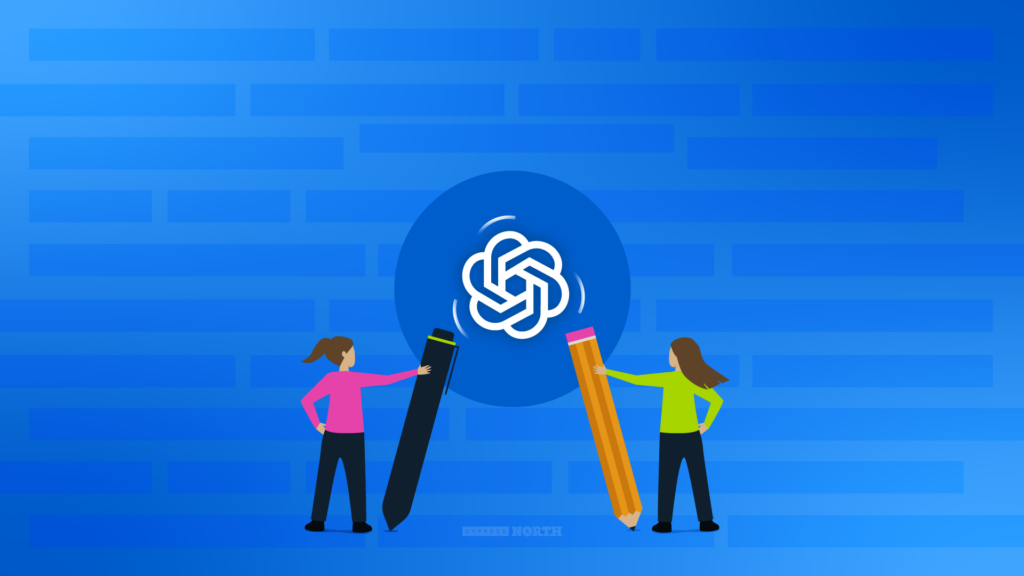
ChatGPT in particular has dominated conversations around AI content writing because it was specifically built for written content.
Table of Contents
What is ChatGPT?
What does AI mean for content writers?
ChatGPT restrictions
How ChatGPT can help content writers
The bottom line: Should content writers be worried?
In this post, we’ll explain what ChatGPT is and what it can (and can’t) do, explore what it means for content writing and marketing, and break down whether content writers should be concerned about being replaced by AI content writing.
What is ChatGPT?
ChatGPT is an AI chatbot that’s designed to understand human language and produce text. It was developed by OpenAI, a research company that builds artificial intelligence technology.
OpenAI released the free research preview version of ChatGPT in late November 2022 and reached 100 million active monthly users by January 2023. The company is now rolling out a paid subscription plan called ChatGPT Plus, which will give subscribers priority access to new features, faster response times, and access to the chatbot even when demand is high.
Since ChatGPT’s release, Google and Microsoft have each introduced their own AI chatbots. The new Bing chatbot is driven by ChatGPT technology and OpenAI’s language model and leverages Microsoft’s new Prometheus technology that allows it to improve search relevance. The Google Bard and Microsoft Bing chatbots are both in the process of being tested by select users before the products are rolled out to the public.
Despite several platforms jumping into the AI game, OpenAI’s ChatGPT remains at the forefront of the content creation and content writing discussion. That’s because it was specifically designed to generate text and content, while Google’s and Microsoft’s AI chatbots are more task-based and focused on searches and conversations.
What does AI mean for content writers?
You’re not alone if you’re a content writer or marketer whose first thought about ChatGPT was, “oh no.” When I first started hearing about the new AI, I was unsettled and apprehensive. It’s hard to avoid that feeling when you hear about new technology that was quite literally built to do your job.
I thought, if businesses have the ability to request ad copy or blog posts from AI chatbots, will they stop seeking out human writers for their website content? Will AI content writing replace human content writing? Will we lose our jobs to this technology?
Then I started to interact with ChatGPT. I wanted to get a feel for what it could do and what kind of content it could create, and see if it had any drawbacks.
I started off making a few quick and easy content requests - I asked it to write a social media ad about the sunshine and clouds.
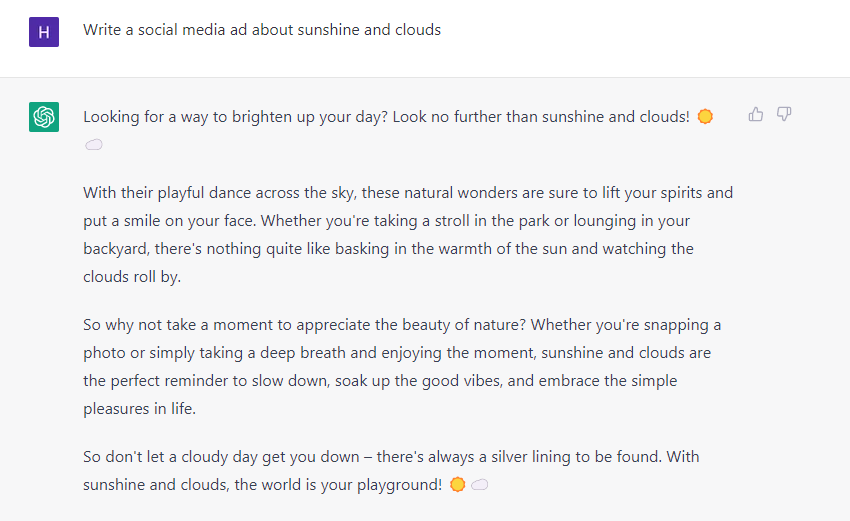
Then I asked it to write a short story about a pair of blue shoes. Almost immediately, it gave me more than 300 words with characters and a decent story arc. I doubt it will win a Pulitzer, but it did what I asked it to do.
After that, I asked ChatGPT to tackle more complex subject matter. I requested blog posts about string theory and the dangers of black holes.
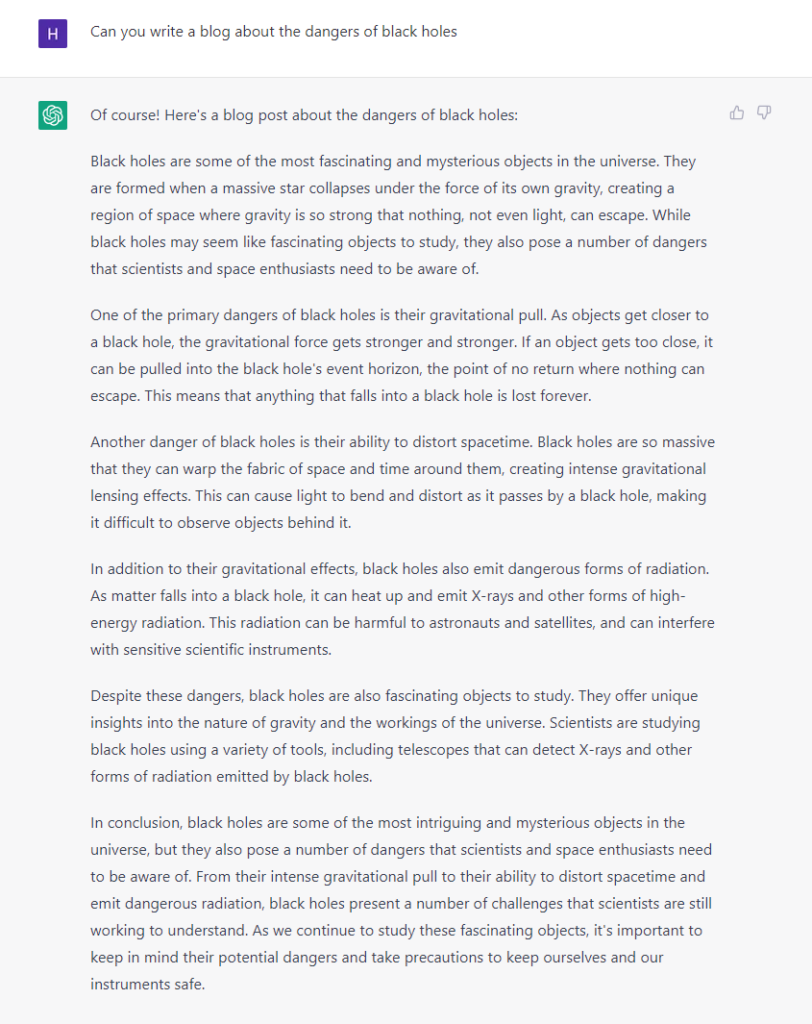
I have to admit that it’s extremely impressive how fast it can churn out these content requests – even when the subject matter is complicated. But my main takeaway from the interactions I had with ChatGPT is that the text it generates can’t replicate or compete with content that’s written by humans.
ChatGPT does what it’s asked, but the writing is very clinical and clunky. The words are in the right place but they’re detached and mechanical - which makes sense because they’re literally written by a bot.
So even though ChatGPT can write content quickly, it can’t replicate the emotion, originality, and flair that humans bring to written content.
ChatGPT restrictions
Aside from the absence of creativity and tone, there are also some more glaring downsides to AI content writing that you don’t get with human content writers.
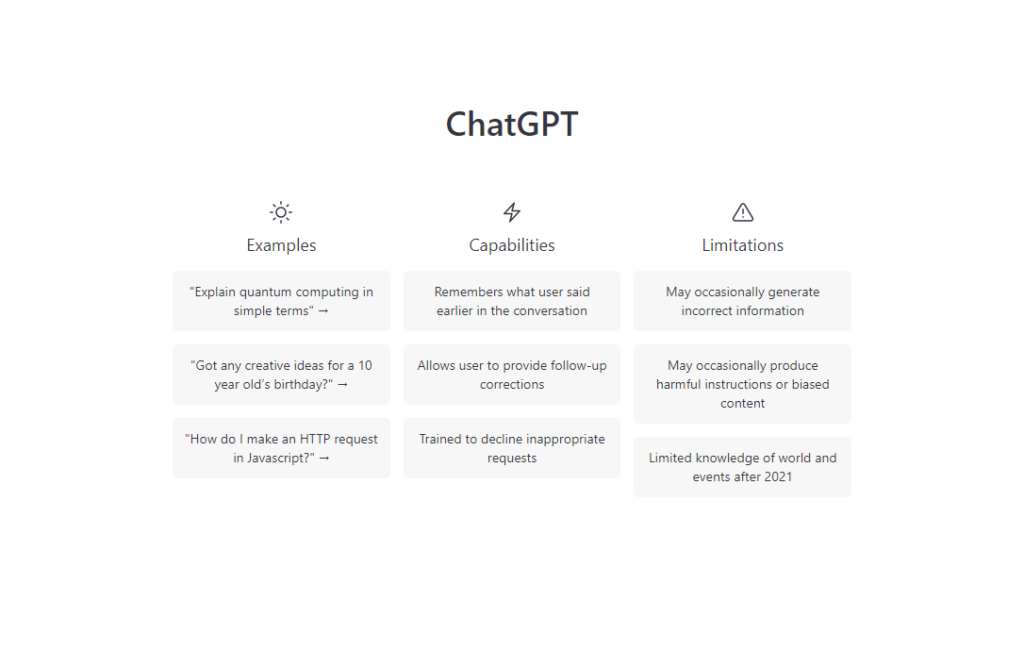
Fact-Checking
The most glaring issue with ChatGPT is that it can provide inaccurate information. It doesn’t have any external capabilities at the moment, which means it can’t scan the internet for articles, or any kind of database, to source information and verify facts.
That alone eliminates any discussion about whether ChatGPT can replace human content writers. You can’t rely on a chatbot alone to generate your content if you can’t even trust it to get information right 100% of the time.
Human content writers may not know everything but at least we have the ability to research, find reputable sources, and interview subject experts.
Knowledge Limitations
Right now, ChatGPT’s knowledge is mostly limited to 2021 or earlier because, according to OpenAI, that’s when ChatGPT’s training data cuts off. So if you’re trying to generate any kind of content that involves current events or new trends, don’t count on ChatGPT – it doesn’t know about it.
Human content writers obviously don’t have knowledge cutoffs like that and, again, have the ability to research and consult with experts in ways that AI can’t.
Length restrictions
During one of the conversations I had with ChatGPT, I asked if there was any kind of limitation on how many words it could write. I was trying to see if it could realistically handle being asked to write a full blog post, article, or skyscraper page.
ChatGPT responded that it doesn’t have a hard character limit, but it does have “practical limitations.”
It explained that the longer a user’s request is, the harder it is for ChatGPT to understand the context, which increases the odds that it will generate an error in its text. The AI bot also told me that the longer the text is that it’s asked to generate, the more likely it is that the content will stray away from the intended meaning.
So while there is no exact ChatGPT character limit and the AI may be able to type faster than human content writers, there are glaring flaws with the technology that prevent it from being a replacement.
How ChatGPT can help content writers
While ChatGPT does have some limitations and issues to work through, it could still play a role in content writing and marketing. I wouldn’t trust it to generate content or copy on its own, but that doesn’t mean writers can’t use it as a tool in some cases.
Brainstorming
Maybe you have a broad topic you want to write about but you aren’t exactly sure what to focus your content on. Or maybe you want to create a pillar page on your website that links off to several different posts about a term you want to rank for, but you’re having a hard time thinking of how to generate enough content on the subject.
If you’re really in a rut, you could turn to ChatGPT. I wouldn’t count on it to write entire blog posts, or even paragraphs of text, but it may be useful when it comes to generating ideas, as long as you keep in mind the knowledge and accuracy limitations.

Outlines
We’ve all experienced writer's block. You know what you want to write about, but the words just aren’t making their way onto the screen and you don’t know where to start.
If you’re really struggling, ChatGPT can generate an outline for you to at least help you get the ball rolling. Just make sure you fact-check what it includes in the outline and make tweaks as needed.
The bottom line: Should human content writers be worried about AI content writing?
Human content writers don’t have to worry about losing their jobs to AI like ChatGPT… yet.
These new technologies can (and will) have a seat at the table when it comes to content creation, but it’s not at the head of the table.
Like a lot of AI that’s been introduced over the years, ChatGPT and other AI chatbots are something we’ll likely learn to live with and use to our advantage to streamline time-consuming tasks.
But nothing I’ve seen indicates to me that we’re at or even near a point where we can rely solely on AI for written content. There are too many flaws with chatbots and, in my opinion, the risk is too high to trust AI to generate content because content is king.
And, for what it’s worth, ChatGPT told me it’s not trying to replace content writers, it’s just trying to help us.
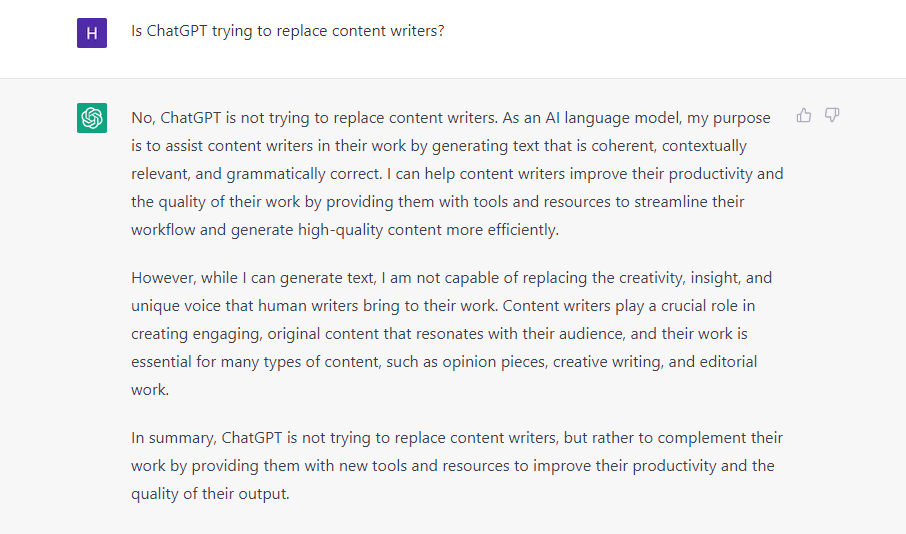
Thanks for the reassurance, ChatGPT.
If you’re looking for quality content to help you boost your brand, the humans - not AI - at Cypress North can help. Get in touch to discuss your next content writing and marketing project.
Meet the Author

Heather Monahan
Heather is our Content Manager who joined Cypress North in November 2022 and works out of our Rochester office. She brings nearly a decade of professional writing experience to our digital marketing team.
Some of Heather's daily responsibilities include writing content for our clients' websites and landing pages, writing ad copy, copywriting, and copy editing. She also helps manage our agency's blog, newsletter, and other internal content writing. Since joining Cypress North, Heather has earned HubSpot certifications for content marketing, inbound marketing, SEO, and social media marketing.
Before joining Cypress North, Heather spent more than eight years as a journalist, working as a news producer and digital content producer for local TV news stations. She most recently spent six years in Tampa, Florida, where she helped lead the digital team and oversaw the station’s growing digital initiative. While in Florida, Heather won a regional Emmy for her work on an interactive digital program that provided live hurricane coverage.
Born and raised in the Rochester area, Heather graduated from St. Bonaventure University with a bachelor’s degree in journalism and mass communication.
When she's not working, Heather can be found taking approximately a million daily pictures of her dogs, geeking out over the latest space news, reading, or sharing tales of her time in Florida. She also enjoys skiing and cheering on the Buffalo Bills - even when they make her sad.


